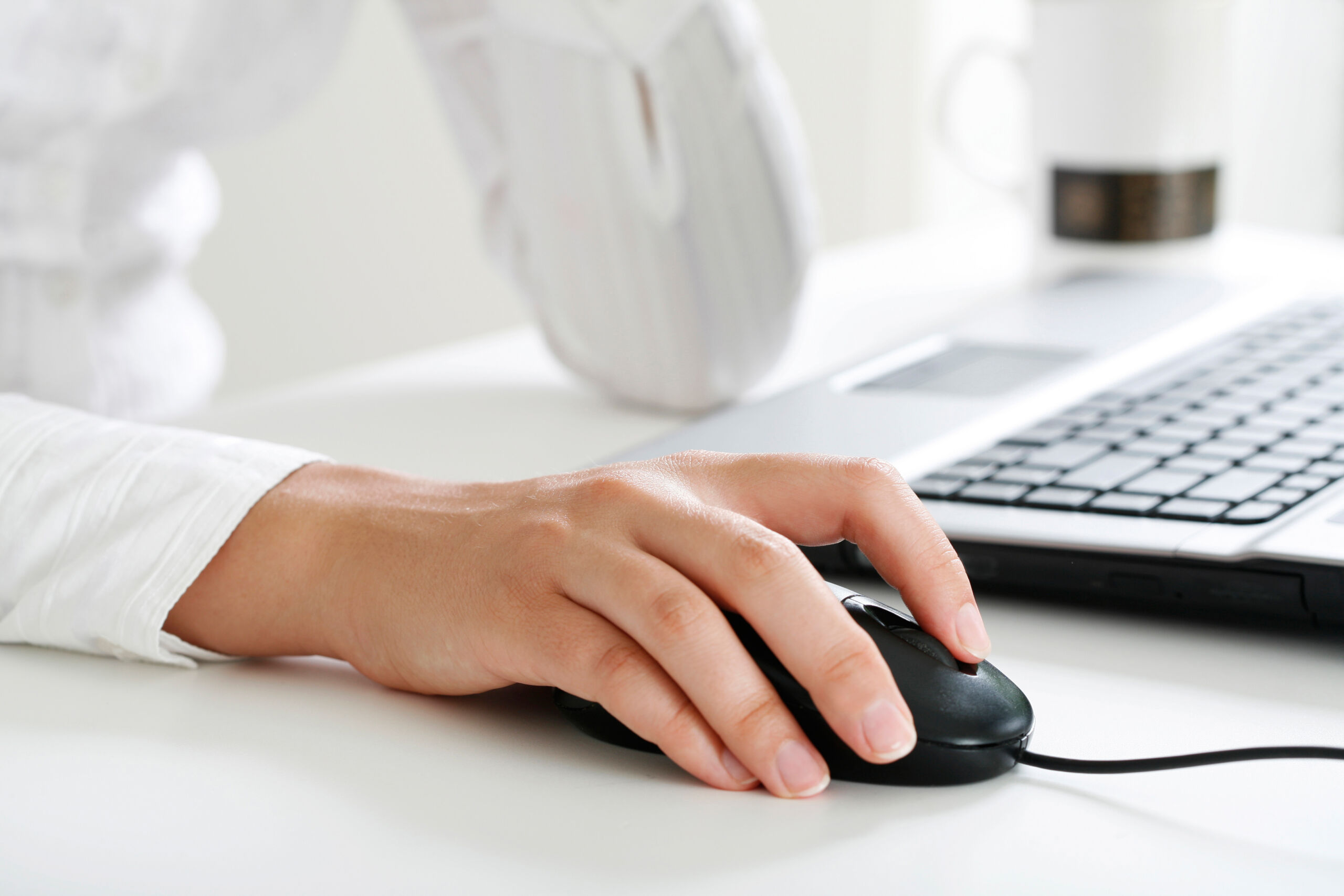Technology makes our lives easier. Computers and cell phones have become a part of daily life for nearly all of us. They keep us connected and are now necessary for most jobs.
Nearly 70% of Americans use computers, cell phones and other devices daily, and we spend an average of 7 plus hours a day on one screen or another.
In general though, it’s not using our technology that’s hurting us: it’s how we’re misusing it.
Your Computer

Keyboarding and mousing may not be considered strenuous activities, but if done incorrectly over time, they can damage the hand and wrist, elbow, shoulders, back and neck.
Most employees are trained to use their computer for their job, but not how to interact with it in a mechanical sense. Not every work area is ergonomically designed or set up and even when people know the proper guidelines and have the right workspace, bad habits can creep back in due to fatigue and inattention.
If you’re not working properly at the keyboard, chances are the first sign will be back pain, neck pain, soreness, or stiffness. Eventually, the pains may extend into the shoulders, forearms, wrists, and hands. Numbness and tingling might suggest nerve problems. Symptoms from arthritis may be exacerbated by repetitive workstation activities including keyboarding, and tendinitis may occur as well.
Your Cell Phone

Swiping and tapping your cell phone doesn’t seem very taxing either, but we use our cell phones for an astonishing variety of activities beyond making phone calls:
- Morning alarm
- Texting friends and family
- Shopping
- Banking
- Checking emails
- Reading the news
- Checking sports scores (Go Warriors!)
- Connecting on social media
- Your company’s payroll app
- Playing games
- Listening to podcasts and music
- Taking photos
- Navigating around town
- Reading books
- Watching TV and movies
- Reading the latest GSOS blog (like you if you are reading this on your phone).
If your list looks anything like this, it means your smartphone is in your hands for hours from the moment you wake up until you go to bed. And if your head is bent over it, eyes on the screen, fingers flying, you may be causing yourself pain.
Smartphone overuse can cause wrist pain because tendons that connect to the thumb can become inflamed at the wrist. Your elbow can also be affected if it is constantly bent holding the phone.
If your head is bent over the screen, your neck, shoulders and back may also be strained. The human head weighs between 10 and 13 pounds, which is fairly heavy. Of course, the neck and spine are designed to support that weight. But that’s not the effective weight when the head is bent down looking at a smartphone or laptop computer. A 5-inch forward lean puts a significant additional amount of weight on the spine. Maintained for long periods during the day—and studies show people spend on average 2-4 hours a day bowing to their smartphones—it can result in pain, strain, pinched nerves, herniated discs and even surgery.
What Can You Do to Prevent Tech Injury?

Pain is your body’s way of telling you that something is wrong, whether it’s trigger finger, carpal tunnel syndrome, cubital tunnel syndrome, tendonitis, or even spine curvature, you may not be able to stop using your computer or cell phone, so what can you do to stop the pain?
The RICE protocol (Rest, Ice, Compression, Elevation) may help alleviate your symptoms, and over the counter pain medications may provide temporary relief, but managing symptoms once they start is only a small part of the story. Prevention is far more important.
- Lift your head from the screen! Holding your phone at eye level helps reduce neck strain.
- Stretch! Perform neck and shoulder rolls throughout the day to release muscle tension. Stretch your fingers, wrists and forearms, too.
- Practice good posture! Many of us fail when it comes to good posture. Slouching is an easy habit to get into and a hard one to break.
- Speaking of breaks, give yourself a break! Get up and take a moment away from your devices. Once an hour give yourself a five-minute break from your screens. This will help you prevent tech injury.
Don’t ignore problems
Just being careful and conscientious may not be enough. Don’t try to ”work through” your pain, hoping it will go away. If your symptoms persist when you are not using a device, you may want to consult a specialist.
The physicians at Golden State Orthopedics & Spine specialize in joint-saving treatments to keep you connected pain-free.

